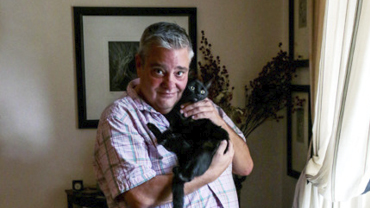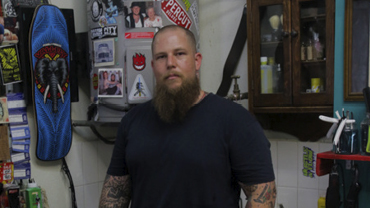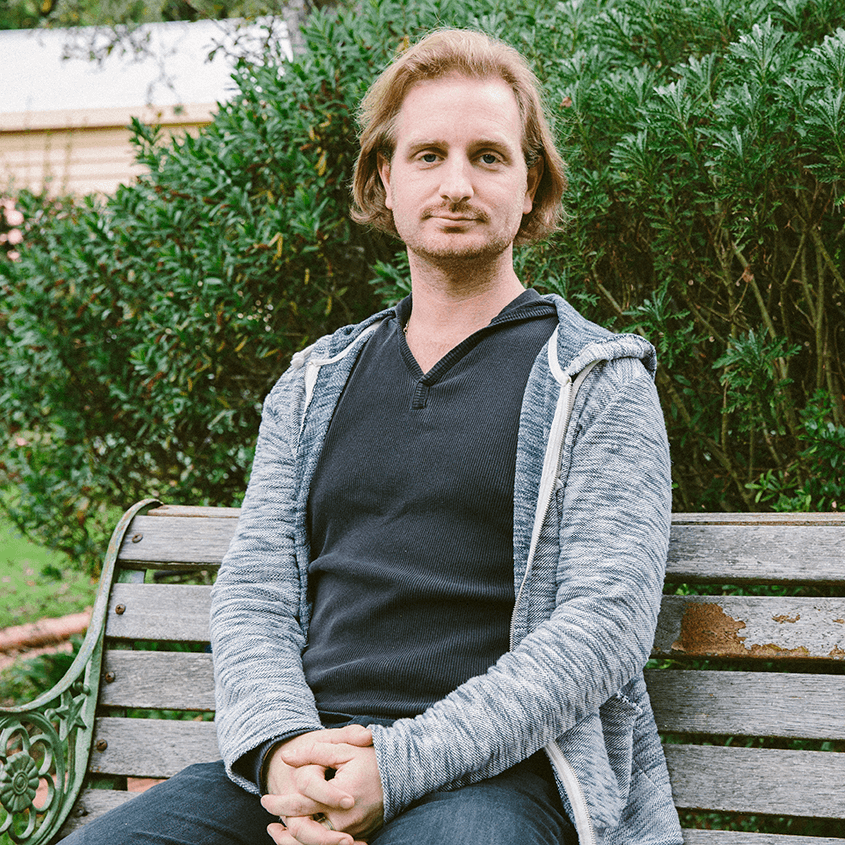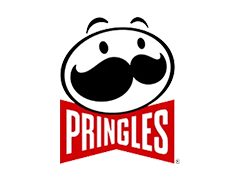In this exclusive interview, recorded for this season of the Movember Podcast, Reggie Ossé discusses major turning points in his life with host and Movember Co-Founder, Adam Garone.
Reggie, also known as Combat Jack, first rose to prominence as founding partner of the small NYC law firm Ossé and Woods, where his clients included such legends as Jay-Z, Damon Dash, DMX, and Sean “Diddy” Combs. He worked briefly as an executive at MTV, then began blogging under the name Combat Jack, building a following with his tales from the golden age of hip-hop. He was then managing editor of The Source Magazine, and now dedicates himself full-time to The Combat Jack Show and the Loud Speakers Podcast Network.
In his career as a podcaster, he has interviewed activists, writers, exonerated criminals and hip hop stars. Like the Movember Podcast, he aims to have open, frank conversations that give insight into new perspectives.
From growing up in a one-parent house and having to find his own role models, to becoming successful in three separate careers, and experiencing truly dark moments along the way: Reggie tells Adam about the key moments that changed him as a man.
Adam and Reggie met in New York in June 2017.
Adam: What was it like growing up here in Brooklyn?
Reggie: Um, you know there was this point. You know, when I was really young, where you know I grew up in Crown Heights, the Crown Heights section of Brooklyn, and it was pretty much working class or class. You felt family and friends and it was just it was really like any other growing up, in any other place. I didn't feel at the time that I wanted for anything.
And then as I got older, you know, things start changing. And most of the kids on my block, we were all the same age but as we as we as we ventured into the 90s, and, you know, you started seeing subtle changes. You know a couple of my friends here and there. We grew up playing football in the street and tag and all of those things and then as we got older kids started looking to get into other things. I was very fortunate that I was always a nerd. So I was into comic books and education, you know? But a lot of my my peers they they they went to a darker path.
And I grew up in a single-parent household, just my mom. So you know, I had to figure out just how to identify myself as a man, as a black man particularly.
Adam: Did you have any father figures in your life? Any old, male role models?
Reggie: At the time, no, I mean I was always pretty cool with my uncles, but in terms of like just really getting, you know, just solid advice, you know, solid guidelines, how to move, you know, how to feel confident. I didn't have that. I just had to figure it out on my own.
And so I just remember this one pivotal time where, I think it was like about a month or so, when I was just really considering, "Do I get a gun or not?" You know? Just because.
Adam: To protect yourself?
Reggie: Just to protect myself, because it was the thing that most of my friends had at the time and it was just like "well, why shouldn't I have one"?
Adam: That's a very different mentality, you know, from where I'm from in Australia... I hear it in LA, where I live: it's that you don't want to be the only person on the block without a gun.
Reggie: Yes, you think: "what's wrong with me?" You know. Everyone else ... am I out of touch? You know? You know, fortunately I realized that at a young age I had the wherewithal, the foresight to realize that that wasn't me. And you know stuck to my guns on being a nerd and really focusing on my education and eventually that took me outside of the hood, that took me to Ithaca, New York, Cornell University, and it took me to Georgetown. But, that's what my environment was like every time I would come home. But I was very insulated.
Adam: I want to understand the origin of the name 'Combat Jack'.
Reggie: Ok: in the process of writing my book, my co-author Gabe Tolliver, who was like this big military buff - at the time he's reading a brand new novel entitled Generation Kill which was about the first tour of duty of Afghanistan, post 9/11. He was telling me about it. He was like, 'There's this one Chapter, Combat Jack.' And the minute he said Combat Jack, I kind of saw this vision of like Captain America, like, you know just—
Adam: This hero figure?
Reggie: You know, coming from the from the comic book world and you know just being a geek and the whole nine. So he starts to explain the whole concept of Combat Jack. Or Combat Jack-ing (laughs) in the heat of battle, like in the most dire moments of life or death situations, these guys would jerk off, and get like this heightened sense of relief. Or, or, or whatever the hell, you know, and they call it combat jacking.
So a lot, of alot of my—listeners like "What?!" But so, UM, this is where hip hop plays a role in my life. Hip hop is very combative. Hip hop, you know, is a bloodsport, it's a, you know, full body contact sport. And at the time I was like if I'm going to blog, I've got to have the attitude of a rapper. You know because you had— there was so many people at the time was like this golden age of like hip hop blogs, 2005, 2006, so many amazing bloggers.
And I was like: if I'm going to throw my hat in the ring, I've got to be the illest rapper. I've got to be the illest - my pen has to be ill. And so I kind of envisioned like in rap battle, you know, you're going to write your blog post, and this is all in fun because at the time the community, even though we were very competitive, we all hope very supportive.
I viewed myself and my peers as like this new generation of rappers. So if I'm going to rap and if I'm going to be in the heat of battle and you guys are shooting your bullets at me, and I'm shooting my bullets at you, this means nothing to me. I will jerk off on all of you as I write the greatest prose on a daily basis.
Adam: And you said, about the blog, that you felt when you were in the industry that you couldn't talk about—
Reggie: You couldn't talk about it. Well, you know, you couldn't talk about your weaknesses, you couldn't talk about the weaknesses, you couldn't talk, because everything is, you know, relationships. And everything is based on, you know, how loud are you speaking? How well do you play the game? You know how accurate do you toe the line? And so you couldn't. Like I remember just at that at one time when I was like my, sometimes when we had a two way Motorola pages, and I remember I would start gushing about an album like LOP's "Warriors" which I thought was an amazing album and I'm like gushing about how amazing this album is as a rap fan. And some jackass is like, "Well, you're an attorney, you really shouldn't be critiquing music." I'm like, "Who the fuck are you to tell me?" But that was kind of like the, you know, like you just be quiet.
Towards my last days in the music industry I felt very uninspired. I felt very unhappy, very lost, and just very heavy. And I never personally considered suicide, but there were times where you know just responsibilities at home, responsibilities in the office, there no way out, there was just no way out. And there were many times where I would put on my suit and I would start walking to the subway station and I would say, "Listen I pray that today's the day at the that the truck hops the curb and takes me out of my misery."
I remember speaking to my peers and I'm like you know, "I need a vacation, I need a break." And they'd be like, "Psh, we making money like what you talking about? What's wrong with you? We need to make more money." You don't rest in hip hop. You don't rest in this game. And you hustle and there's no stopping this.
Adam: Yeah, because there are these.. traditional aspects of masculinity.
Reggie: Yes.
Adam: Our generation are conditioned to to be the provider, to be 'fathers', to always be in control and never vulnerable, not to show emotion, not to talk about your emotion. And that can have a really negative impact when you're struggling because you've got to create this facade and project that out. I can only imagine.
Reggie: And how do you project that facade to yourself?
I remember, and I don't mean to jump off track, but I remember significant significantly, this one, it was January 1st, and we were all having like their annual gumbo like this palatial like estate and like, just wealth and you know new wealth in the music industry. Some very uber Black executives in the music industry, very very very successful.
And so we all joking and you know one of the guys is like, "Well, what did you guys do earlier today?" And I was like, "Well I spent two or three hours really just writing the things that I need to change my life for this year, like you know like, quote unquote resolution." And everyone in the room was like, "Two hours? What's wrong with you?" You know?
You know, there's always room for—I don't care how successful you are, it's always room for you know, improvement, so if you guys don't see any room for improvement, what's wrong with y'all?
Adam: It's happiness versus wealth, as well.
Reggie: Yes. Yes.
Adam: And it must've been a really pivotal moment, I recognize that, and then be, to go, "I'm going to totally shift careers from being an attorney and a lawyer in the hip hop industry to being a blogger."
Reggie: Who does that?
Adam: You've done degrees, you've, you're working for a practice, you've got a clientele...
Reggie: I've got kids!
Adam: Yeah! (laughs) And then you're going to be a blogger which anyone can do and start, now, overnight.
Reggie: Right.
Adam: Without any, any income. And somehow break out of that.
Reggie: I'm very fortunate in that in my early 20s, I became a practicing Buddhist. And it was just the paradigm is like, you know, really at the end of the day, what is relative happiness and what is true happiness? Like money can't buy you happiness.
And if you trust your faith and if you trust, you know, the importance of your individual life in this universe, then you will do anything possible to achieve, achieve complete happiness. And at a certain point I was like I don't give a fuck about this anymore. I will walk away from everything. You know, I'll jeopardize me and my family going homeless. I have to be happy.
Adam: You know, I can totally relate to that: having founded Movember and continuing now to work in charity, it's not a path to become rich.
Reggie: And I love my fancy watches. I loved, God you know, you know when I wound down my practice, I sold my fancy watches, so one of my goals is I've got to get at least one of my fancy watches back.
But it's ironic. I read a tweet earlier today, this morning, and it said, "Real wealth is being to acquire something that money can't buy." So simple.
Adam: Recently you hosted a podcast, Mogul, which is all about the life and death of Chris Lighty.
Reggie: You know I had heard of Chris Lighty even before I got the music industry. When I was in law school and hearing like the Jungle Brothers or you know early Tribe Called Quest and they were you'd hear all these references to Baby Chris.
And then coming into the industry and you know focusing on my career and hearing about Chris Lighty, you know, being this amazing manager at Def Jam. Chris Lighty you know starting this Violator Management company and record company.
And then meeting Chris Lighty on several occasions and like this tall handsome, you know, unapproachable like unreadable character, but you knew he was solid in the game. You knew that he was successful in the game. You knew that, um, if your clients there were several times and some of my clients like, "Yo, I think Chris Lighty wants to sign me." You knew that that was, you know, your client was headed in the right direction.
This is a guy that was uber successful. Leaving the industry, I'm still reading about how you know he continued to have to break expectation and norm, with like, the 50 Cent/Vitamin Water deal. This guy like, you look at Russell Simmons, you look at Leore Cohen, you look at Dr Dre or Jimmy Iovine, you look at Diddy, arguably one of the best was ever done it, you know, in my generation. You look at like he's from that same cut. He's cut from that same cloth. And then five years ago, you hear about his suicide and you're like, "What the fuck?"
Adam: How does that? How do you rationalize that?
Reggie: Yeah, how do you rationalize that? You know from the outside looking in, this guy had everything. But then me, from, coming from the industry knowing like yeah, I kinda, particularly ...
Adam: You, you sort of got to that point in your career where you know probably the people around you looked at you on the surface, and thought, "You're very, very successful in your chosen profession in the hip hop industry. What more could you want for, career-wise?"
Reggie: When I would talk to my peers and even you know suggest that I wanted out, they were like, "You're crazy. What are going to do? Get a job? You've never had a job. What are you going to do?"
Adam: You're gonna blog.
Reggie: Yeah. That wasn't even a possibility then. You know just, you know, it was a five year process of me really deciding at a certain point that I was going to jump ship.
But it was a process of like, "Let me see what this friend feels." Like, "Are you kidding me? What do you think? Just just, stay the course." "Man up." That's what I keep hearing, "Man up." And at a certain point, I couldn't do it. Knowing that, huh, there was a certain point in Chris's life where he wasn't happy.
Adam: Do you personally feel more comfortable now you know, talking about you know how you're feeling, you know more comfortable seeking help and recognizing some of those things because of, you know, probably experience, but also really diving in to, to Lighty's life and you know that tragedy?
Reggie: You know there's a saying that this kind of comedic comedic kind of saying that kind of champions like you know those negative aspects of patriarchy in the black community. We say, "I'm a grown ass man, dog." You know what I'm saying, if someone questions you, I go, "Yo, I am a grown ass man dog."
You know but the flip side is, you know, the older I become, the more experienced I become, the more transparent and vulnerable and aware of my frailties and my shortcomings. It's very empowering.
Adam: Hmmm. And it's probably mirrors how, as men, we're evolving.
Reggie: Yes. You would want to hope so. Because, I think, um, what's rampant amongst most of us men is we don't allow ourselves to evolve. You know, we we want to make America great—we want to—again, you know what I mean?
We want to go back into, we want to bring it back to the old days when women and people of color knew their, their place. You know saying? We want you we want to go back to where it seemed like there was a job on every corner and like the employment, you know, the employment was at this robust, you know, like we want to bring it back to where we can invade any country with impunity.
Atrophy. That, that's part of our D.N.A. as a man. Right? Like we have to fight against that, we have to be rigorous about, and vigilant about, fighting against that.
Adam: How has your view of music sort of ... how has it evolved as you've got older?
Reggie: I think when we're younger, if we're into popular music, if we're into the music that fits our pocket, we're, in our minds, we imagine ourselves, particularly if it's a new form of music being you know rock and roll or you know pop rock or hip hop or whatever that new craze is. You know, you know I'm saying, like, like house or techno, whatever it is, you know, grunge, you know. You are, you feel, as if you're a revolutionary you know you feel like this is the ONLY—this is that you're on a mission to keep things as pure as possible, and as raw, and as, as anti-establishment as possible. Right?
And then you fight this fight. You know, living with this culture that inspires you life. The few of us that are fortunate enough to maintain that marriage of our lives and our music and our culture, you know, and at a certain point the music changes, right? And then you that it's not pure anymore. It's not revolutionary. It doesn't have that edge and then you start saying well, "This music. This new music is not what we had before. This music is worthless. This music is dangerous to our way of life."
And you don't realize that you're becoming an old man.
Adam: How, you know, growing up in a single parent house, how does that influence you as a, as a father of a four kids?
Reggie: You know, I can't believe being an only child and now having four kids. And then you know that in itself is a shock. You know because for the most part, I'm pretty selfish. You know, what they say about only children, pretty selfish, you pretty much have to be kind of selfless with kids.
Um, patience, you know, I've been very impatient throughout my life. And I find now you know going through you know my family's going through like this really pivotal moment, just really, um, really, really, really relying on um, a deeper sense of compassion. You know, so you know, for the most part, if my son does something stupid like, it's easy for me to, you know it's easy for me to react or respond to criticize or you know better than that.
But I find at this time, like there's a great a sense of patience, you know, because they're at that age that I was at. You know 15, 19, and 20. They're at that age where the world is scary. You know I think the world, as scary as the world was in the, in the, in the 80s, we live in the, in the, like for them, my my ten year old daughter she's stressed out.
She's like, "Um, dad, are we going to experience segregation again?" "At what point will we all die because of climate change?" This is a nine year old girl.
At ten years old in Australia where you even considered with global politics?
Adam: No, and I struggled to know the Australian Prime Minister.
Reggie: Of course. Of Course.
Adam: Let alone the U.S. president, and even contemplating that, that person has some sort of impact on my life.
Reggie: Right.
Adam: So. Yeah.
Reggie: My kids went to the best private schools I, you know, they're very spoiled. You know, at 20, 19, and 15, my sons have never had a fight. Which to me is like: you've never heard had a fistfight? What? I guess we're doing something right you know.
But, you know, recently, like over the past four years like, "Dad, like what happened to Trayvon? What happened to Michael? What happened to Eric?" And then just a realisation like, "Dad, are they killing us? And having to be that far get a father figure to each and every one of them, you know?
Adam: So have you sat down with your boys and had that chat with them... around?
Reggie: You know, I had that chat with my kids when they were two or three because I you know I was already aware. Before this thing became cliche, before this thing became visible, I like you know if you're if you well versed, if you're aware in America particularly if you're African-American, you know what the fuck—can I curse?
Adam: Yeah of course.
Reggie: You know what the fuck is going on even though the rest of society may ignore you and saying, "No, you know..." You already know the story.
Adam: Have you tried with your sons to to really encourage them to understand that life's a lot of up and down, and to come to you if there are issues, and to show their vulnerabilities?
Reggie: You know early on in life like my two eldest sons are so close in age, fourteen months apart and they would fight and one of them would say, "Daddy it's not fair!" And the other would say, "It's not fair!" And I'd be like, "Sons, sit down. Life is not fair." And they're like, "What?" And I'm like, "Life is not fair." So at an early age I was drilling this in.
So and now you know your girlfriend issues, you know you know, two are in college, you know, they're experiencing life. One of them, my eldest son particularly, you know when this whole emergence of Black Lives Matter, you know, when that emerged it really affected his life. And you know and so I tell my sons all the time like, "I'm your dad. You know like, you guys are going to hide things for me and I respect that because that's what we do. But at the same time, if there's something that's really crucial, there's something that is really important, that something that you feel you know you're missing that that's not allowing you to be complete, please feel free to tell me."
And what I've done at the same time is there's issues in my personal life that I, you know, I may have not felt comfortable, you know, being totally transparent with my children. But like if this is going to be a trusting relationship where they feel they can come to me, then I should be able to lead by example and come to them.
"Your father is not perfect. Your father has fucked up a lot." You know?
And it's OK.
You know not it's OK that I fucked up, and it's OK that I can take accountability and I can vow to do better so that you guys will be far better than me. You know what I mean? So I share that with my kids a lot.
Adam: So your family, you are going through a tough time.
Reggie: Yes I am. I'm going through a divorce.
Adam: And that itself is a huge transition.
Reggie: Yes I mean I've read, I read years ago in some magazine article that the most difficult thing a man in Western society can go through, above illness, above the loss of life of their closest, dearest ones, is a divorce. I was like, what the fuck is that? Yes. It is.
Adam: And so the Lighty experience, what you've learned along this this journey, how has that equipped you better to stay, you know, mentally well and sort of level?
Reggie: Well, initially through the process I went to see a therapist. And he was just so so supportive, like you know, just so supportive in terms of like resources that I should read and just you know you know what I was going through was not abnormal. You know? And we tend to look at, you know, divorce as a death in itself, like the death of a family, the death of you know someone that we knew and lived with for, you know, some-odd years. And so even though I knew that what I was going through was not OK. You know just the aid of therapy helped me to realize that I was OK.
And then, you know, as I started getting comfortable sharing this with, with other people, I shared with my eldest brother, my eldest half brother who himself you know has been divorced and as you know is in a, in a very happy, thriving, healthy marriage right now.
And it was something very simple that he said, because I was you know really like insecure in terms of sharing that, you know, unsure. And I was like, "You know I'm going through a divorce." And he was like, in the most calmest voice, most reassuring voice, and I don't know why it's so simple. He's like, "Well, Reggie, you won't be the first. And you won't be the last."
And I don't know what it was about that that was like (sighs) this weight was lifted. I mean like, okay, so yeah, like I won't I'm not the first and I won't be the last. Okay. I can. I can make it to the other side.
Adam: So last question. There will be some men listening to the podcast or reading this interview that will be struggling with some sort of transition. Whether it's a career transition, like you went through, or a divorce or potentially with their kids, what advice would you have to a man that is that has challenged one of those transitional moments?
Reggie: I mean, you know, I would say this, what's has helped me lot, and when someone comes to me you know, man, woman, and they're at this juncture, and like I need to find a change. The first thing I ask them is like: "As much as we're anchored to this physical world, like what's your spiritual practice? And I'm not talking about your religion. What's your spiritual practice?" Are you active on a daily basis on, you know, just just finding comfort and strength and wisdom and reassurance and this other thing that we can't touch, but if we, if we are in tune you really see that it plays such a huge role in our daily physical, active lives?"
"You know, do you meditate? Do you chant? Do you find some time to pray?" You know, I think we have this, this, this view, that we go to our synagogues or our mosques or our churches or our temples once a week—we're good. Where it's like, no, everyday, what's your active spiritual practice? You know, like Jay Z says on the new album, you know, Jay Z says something really subtle to Beyonce, he's like, "Yo B! this spiritual shit really works!" You know what I mean? And that's been my that's been my experience, that's been my life, like what are you going beyond? You know, how are you on a daily basis taking a leap of faith and going into the unknown? So that when you come back the known is that much more secure and happier for you?
You know definitely definitely, you know we live in an age right now I think one of the greatest phenomenons that we've experienced in pop culture over the past fifteen twenty years was the Sopranos! Tony Soprano, you know, like alpha male, unquestionably alpha male, but what made him this great character was every week his sessions with Dr. Melfi. You know his his his his his psychiatrist. And that broke the mold because that chipped away at like what masculinity is, you know? And and who we open up to and when do we realize that we need help.
And a lot of us, I think if we live in modern day society. I mean particularly here in the States, if you live in the United States, I think all of us need some form of therapy. (laughs) Because it's a lot it's a lot of trauma that we definitely go through on a daily basis from, from the moment where you know indoctrinated into like the schooling system. You know? It's a lot of trauma and we take it for granted.
A lot of pressure. You know find a group of friends that you can talk to and you feel safe that you won't be judged. You know as a matter of fact, push and find friends that you can tell me the most outlandish, most private things about yourself.
You know so find a safe place—read, there is so many resources out there. I'm not pushing a product but there's this new product that I was pushing on on Mogul, it's called Talkspace and it's a site where, even if you're afraid, some people are anxious about meeting people face to face and talking about their issues, so there's a service on Talkspace where you can actually call you know therapist and you find one that really fits your needs. And I think it's as low as thirty dollars a session.
So like even just the newest in technology you're seeing how the resources that help in mental health are advancing with technology so definitely like you know people say, every—read you know, you know The Secret or you know The Four Promises of Deepak. Just delve into like, delve into it. It's real. It is real.
Adam: Yeah, and it's so important for the men out there that are going through this to heed your advice. But for all the other men and women that know someone's going through a key transitional moment, divorce, retirement, becoming a new dad whatever it is, to be listened to often—what you don't hear which is men start to isolate themselves when they're struggling.
Reggie: We isolate ourselves. That's what we do. That's the, that's like, that's like our life path. We go out there, we conquer the world, maybe we don't conquer the world as much as successful as we thought we was, and after that we uh, we start to detach. And we feel comfortable in our Laz-boy, in front of our, T.V. with a remote in one hand and beer in the other and it becomes the rest of our lives.
Adam: So if you do you know someone is going through one of these transitional moments, it's so important just to reach out and contact them and get them out in a space where they'll feel comfortable having a chat about the real stuff going on in their life. And Reggie,thank you so much for joining us here at the Movember Podcast.
Reggie: Thanks for having me man. This was awesome.
To listen to more real conversations with inspirational people from around the globe, click here. If you like what you hear there, please subscribe, and share it with your friends - it really helps others find us.
If you want to find out more about the work the Movember Foundation does, please click here.

27 septembre, 2017
In this exclusive interview for this season of the Movember Podcast, Reggie Ossé discusses major turning points in his life. If you would prefer to listen, please head over to movember.com/podcast and subscribe.
Reggie Ossé: 'We isolate ourselves. That's what we do'
26 MIN À LIRE







